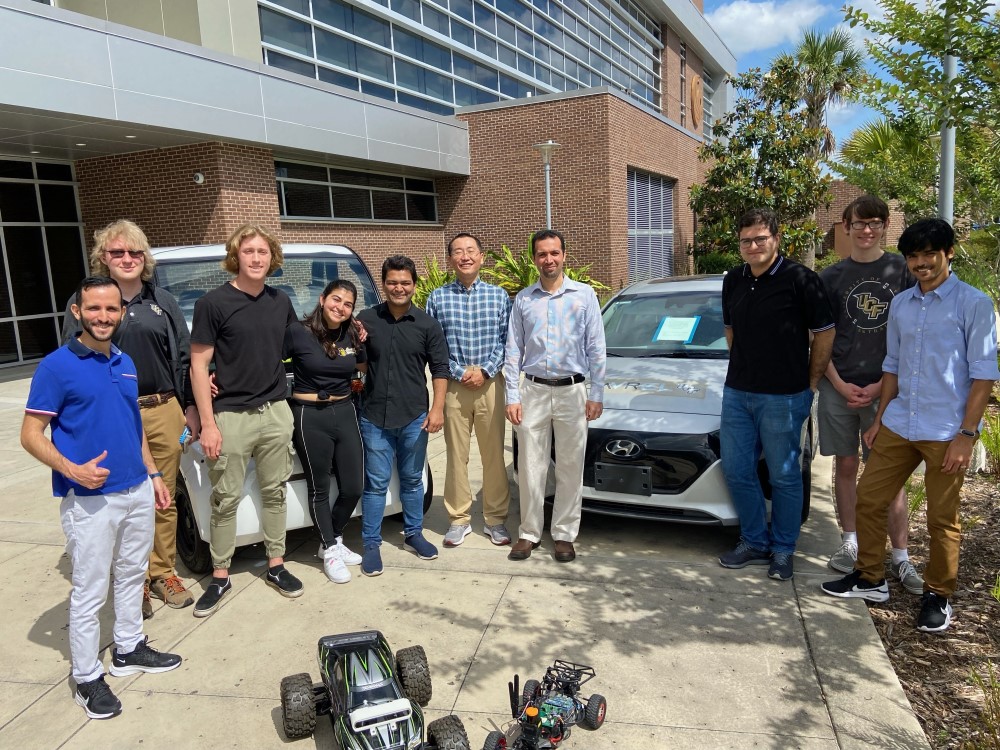
Research by three ECE students from the Real-Time and Intelligent Systems (RTIS) lab – Ph.D. students Abdullah Al Arafat and Sudharasan Vaidhun, and undergraduate student Kurt Wilson – and RTIS lab director, assistant professor Zhishan Guo has been chosen as a publicity paper for the 59th Design Automation Conference (DAC), to be held July 10-14, 2022 in San Francisco. Their work, “Response-Time Analysis for Dynamic Priority Scheduling in ROS2,” is the first from UCF to be chosen as a DAC publicity paper. Overall, the flagship conference in design automation has an acceptance rate of around 20 percent.
In safety-critical applications, complexity usually makes analysis difficult and intractable. The release of Robot Operating Systems 2 (ROS2), a popular framework used in the design of robots and other autonomous systems, has complicated scheduling policies, making the response time bounds of applications unnecessarily larger.
“Designing safe autonomous systems is only possible with known worst-case timing bounds, which we are trying to develop in this direction of our research,” Arafat said.
The team’s research proposed and analyzed a deadline-based scheduling strategy for the ROS2 executor. Using this method, they were able to obtain the benefits of the original executor, without the need for a complicated scheduling strategy suitable for safety-critical applications. Their work impacts safety-critical systems, such as self-driving cars and smart factories.
“It is encouraging that the research community emphasizes the importance our research by honoring our paper as one of the very few publicity papers,” said Guo. “It will surely motivate our group to continue contribute in real-time perspectives of ROS2.”
